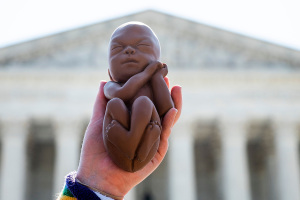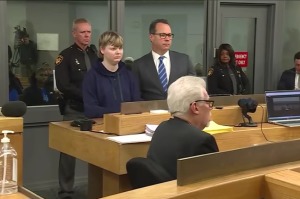U.K. Gov't to Rethink Controversial Religious Hatred Bill Following Christian Protest
The controversial Religious Hatred Bill proposed in the UK was defeated in the House of the Lords yesterday, signaling the British government’s intention to reconsider the bill as Christian protests against it continued.
The controversial Religious Hatred Bill proposed in the UK was defeated in the House of the Lords yesterday, signaling the British government’s intention to reconsider the bill as Christian protests against it continued.
While the government claimed that the proposed legislation is set to outlaw incitement to religious hatred, opponents are concerned that it would undermine the freedom of speech. A cross-party amendment was introduced to the government on Oct. 20 with an aim to insert safeguards into the bill.
The former Archbishop of Canterbury, Lord Carey of Clifton; well-known comic actor Rowan Atkinson; the Conservative Lord Hunt of Wirral; the Liberal Democrat Lord Lester of Herne Hill; and Labour's Lord Plant of Highfield are the leading campaigners for the proposed amendment.
On Tuesday, the Lords voted with a majority of 149 in favor of the cross-party proposal, according to a report by Reuters.
Lady Scotland of Asthal, the Home Office minister, later hinted that the Government was willing to reconsider the controversial Religious Hatred Bill, adding that she would give serious consideration to a solution that could attract widespread support, reported the U.K.-based Telegraph newspaper.
"I do not say the Government will not think again, but I do say very clearly I do not have this afternoon amendments or suggestions that I can put before you which you can consider. I may be in a better position to do so by report stage," the Telegraph quote her as saying to the peers in the parliament.
In the light of the vague definition of "inciting religious hatred" in the existing proposed Religious Hatred Bill, the cross-party amendment requires the prosecution to prove intent before a conviction could be obtained, according to BBC.
Moreover, the cross-party suggests a broadly defined protection of freedom of expression that would defend the right to ridicule, insult or abuse religions or their adherents, and specifically allow proselytizing.
According to the U.K.-based Times, if these new clauses are added, the structure of the proposed Bill will be fundamentally altered.
"You cannot promote tolerance by limiting freedom of expression. Tolerance and freedom of expression buttress one another. They are inseparable siblings. This Bill just goes too far, far too far," commented Lord Hunt, one of the leading advocates of the amendments, opening the debate in the House of the Lords Tuesday, according to the Times.
The Evangelical Alliance United Kingdom (EAUK) welcomed the vote for free speech safeguards in the proposed hatred Bill.
R. David Muir, Director of Public Policy at the EAUK, stated in a press statement, "Peers have done the only sensible thing with this legislation and forced the Government to rethink its position. The strength of opposition to this Bill in the House of Lords is a timely reminder to ministers of the importance this country places on free speech."
Don Horrocks, Head of Public Affairs at EAUK, added that the alliance has worked tirelessly with a number of organizations to keep this issue in the headlines, according to the press statement.
The overwhelming backing of the amendment has showed that the Bill is "seriously flawed", Horrocks suggested. Therefore, the EAUK urged the government to "consult with the relevant people to get the Bill right," the statement read.
The leading Christian social concern charity CARE has also warned in a released statement that Christians should not become complacent even though the government has signaled their consideration on the amendments.
Roger Smith, Head of Public Policy at CARE, stated, "The Government are ideologically committed to this Bill - they are bound to its passage because it is an election manifesto pledge. They also have the majority in the House of Commons to overturn these welcome changes."
"Now it is for everyone who values freedom of speech and good community relations, not just Christians, to appeal to the good sense of Members of Parliament to support these new protections offered in the Bill when the Government do challenge them in the House of Commons."



























